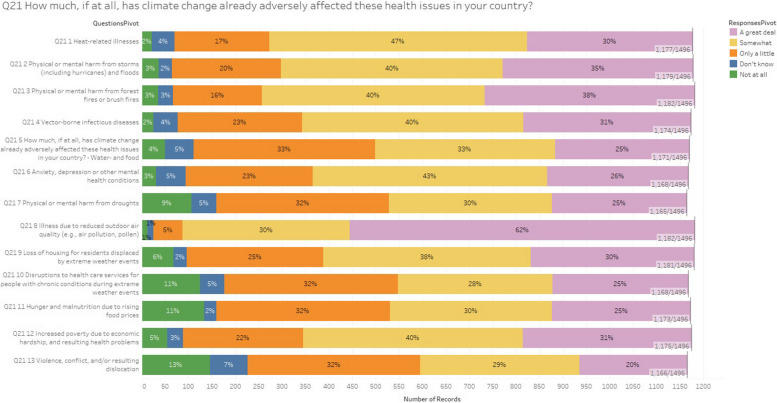Fig. 1.
The survey question, “How much, if at all, has climate change already adversely affected these health issues in your country?” This bar chart illustrates the public perception of how climate change has adversely affected various health issues in their country. Respondents were asked to rate the impact of climate change on specific health problems, such as heat-related illnesses, physical or mental harm from storms, floods, forest fires, and brush fires, vector-borne infectious diseases, and water- and food-related issues. Additionally, the survey considered mental health conditions like anxiety and depression, harm from droughts, illnesses due to reduced outdoor air quality, and the loss of housing due to extreme weather events. Disruptions to healthcare services for chronic conditions during extreme weather events, hunger and malnutrition due to rising food prices, increased poverty due to economic hardship, and resulting health problems were also included, along with violence, conflict, and resulting dislocation. The chart categorizes responses into five groups: “Not at all,” “Don't know,” “Only a little,” “Somewhat,” and “A great deal.” For most health issues, a significant portion of respondents indicated that climate change has impacted these areas either “Somewhat” or “A great deal.” Notably, 62% reported that illnesses due to reduced outdoor air quality have been affected “A great deal,” while 47% said heat-related illnesses have been affected “Somewhat.” Other health concerns, like mental health conditions and harm from droughts, also show considerable perceived impact, with high percentages indicating these issues are affected “Somewhat” or “A great deal.” Overall, the chart highlights widespread concern about the negative effects of climate change on health, demonstrating that many people believe these issues are already being significantly affected

